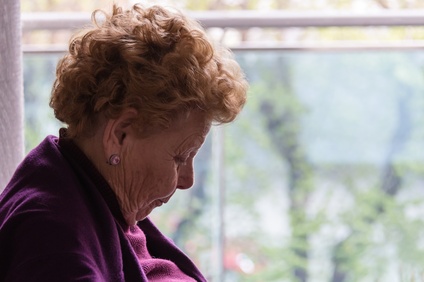What to Do If Your Elderly Loved One Has Been Neglected or Abused in California
There are often signs your elderly loved one is being neglected or abused, and it’s recommended that you call a nursing home abuse lawyer as soon as you can in order to get your case assessed. However, the severity of the abuse or neglect can impact the sequence of events you take in seeking justice for your loved one.
In this article, we’re going to cover each part of the process, all of which may change or adjust based on the severity of neglect or abuse happening, when it’s occurring, and how often it’s occurring. The nursing home abuse lawyers at Belgum, Fry & Van Allen have five steps to consider when a nursing home is not properly caring for a loved one.
Step 1: Complain to the nursing home, administrator, director of nursing and/or staff in writing.
Step 2: Complain to a nursing home ombudsman.
Step 3: File a complaint with the California Department of Public Health (CDPH).
Step 4: Call the police (if necessary).
Step 5: Work with a nursing home abuse lawyer to formally file a lawsuit.
Again, it’s important to remember that these steps should be thought of as a sliding scale, and one that should be used on a case-to-case basis. If there is obvious and reckless physical harm being done to your elderly loved one in a blatant and dangerous way, calling the police immediately is the correct course of action.
However, as is so often in elder abuse or neglect cases, the wrongdoing being done to an elderly loved one doesn’t always immediately escalate to the point of requiring police activity. It often starts out as a single or minor issue, that can then worsen or escalate over time. The sooner you take action, put your complaints in writing, and consult with a nursing home abuse lawyer to help you with your case, the better your chances are of being able to prove elder abuse.
Step 1: Complain to a Nursing Home Director or Staff in Writing
Step one is meant to be an initial request to discontinue an act or put more effort into the care of an elderly loved one, for an issue that doesn’t immediately require police or legal action. Oftentimes, the nursing home abuse lawyers at Belgum, Fry & Van Allen find that this is initiated from an elderly loved one alerting their family or caregiver that they have been made uncomfortable within their care situation.
Occurrences such as meal complaints or lack of scheduled activity are examples of times to put in writing a claim to the nursing home director or staff stating that the level of care is not acceptable. Ultimately, starting a formal paper trail can be an advantageous resource if your situation or case were to ever end up in litigation to prove elder abuse.
Before we move on to step two, remember that the earlier you call a nursing home abuse lawyer, the better. With free evaluations like those offered at Belgum, Fry & Van Allen, a dedicated attorney can tell you if you have a case worth pursuing, no case at all, or a situation that you should keep your eye on to see if it gets better after your formal complaint.
Step 2: Complain to a Nursing Home Ombudsman
Again, if we consider the sliding scale of this process, calling a nursing home ombudsman doesn’t have to happen at any set time. However, as stated in step one, creating a paper trail can be helpful for you to fall back on if your case ever proceeds to litigation. It also makes sense to consider an ombudsman if you’ve formally complained to the nursing home director, and no improvements were made.
An ombudsman, part of every state’s long-term care (LTC) program, is a designated employee or volunteer who helps “resolve problems related to the health, well-being, and rights of nursing home residents.”
Ombudsmen are objective, third-party elder care advocates brought in to ensure the core rights of elders are maintained and the standard of care of each resident is appropriate. These rights and care standards include:
- Dignity
- Safety
- Housing
- Care
- Personal property
- Privacy
- Expression
Ultimately, if involving an ombudsman leads to an improvement in your elderly loved one’s care, then all parties can move forward in an aligned and resolved way. However, if after engaging an ombudsman and complaining to the nursing home director, the care and treatment of your loved one do not improve, then you are justified in taking further action.
As a reminder, and before we move on to step three, if you’ve gone so far as to complain to a nursing home director and enlist an ombudsman, it’s time to call a nursing home abuse lawyer, too. The sooner an attorney can get involved, the sooner they can start charting out a course of action.
Step 3: File a Complaint with the California Department of Public Health
Step three entails creating another written record of elderly abuse and neglect, now to CDPH. CDPH is the state-run agency in charge of enforcing the laws related to the Elderly Person Care Act of California.
Filing a complaint with CDPH requires a long list of steps and requirements, but can be vital in seeking justice for your loved one and proving elder abuse. One of the required steps in the process is to submit any records that should be examined by the investigator, which should include your formal complaint to the nursing home director and formal records provided by the commissioned ombudsman.
In addition to filing a complaint with CDPH, filing a complaint with your state Senator’s Office, assembly member, as well as the Bureau of Medi-Cal Fraud and Elder Abuse (BMFEA) can be additional steps to take.
If you’ve read this far, take note to consult the services of a nursing home abuse lawyer like those at Belgum, Fry & Van Allen. Filing complaints with nursing home directors, an ombudsman, your local government, and the BMFEA can become a robust operation—one that gets easier with the help of experts.
Remember that nursing home abuse lawyers like those at Belgum, Fry & Van Allen work on a contingency fee, meaning that regardless of how much time they work on your case, their final fee is not affected. Therefore, it is to your benefit to hire an attorney sooner than later.
Step 4: Call the Police (If Necessary)
This step serves as one last reminder that the process of reporting elder abuse or neglect is on a sliding scale. However, if you believe that your loved one is being abused or neglected in a life-threatening or criminal manner, call the police immediately, because steps one through three may take longer than your elderly loved one can withstand.
If it gets to that point of involving the police, your next call should be to a nursing home abuse lawyer. Once the police get involved, there is sure to be legal aftermath, so having proper representation will be critical for your case.
Step 5: Work with Your Nursing Home Abuse Lawyer to Formally File a Lawsuit
If you feel you should be taking any of the steps outlined above because of the potential neglect or abuse your elderly loved one is suffering at a skilled nursing facility or assisted living home, don’t wait any longer to call a nursing home abuse lawyer. The nursing home abuse lawyers at Belgum, Fry & Van Allen are here to evaluate your case for free and can walk you through the appropriate steps to help you navigate this complex and disheartening process.




